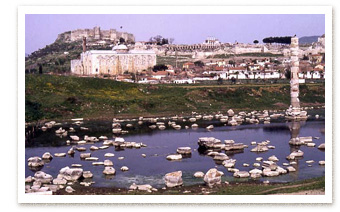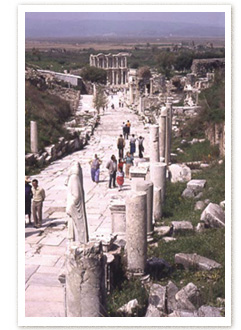A History of Ephesus from coins: the Greek state
3.1 Introduction
If you had asked an ancient Ephesian what was the most important event in the city's early history, (s)he would probably have said that it was Leto's giving birth to Artemis and Apollo nearby at Ortygia (though the Delians, who also claimed to have hosted that event, would have argued the point). The Ephesians also believed that their Artemis sanctuary had been founded by Amazons, led by queen Penthesileia; she gave birth to the river-god Kaystros, who gave birth to a son, Ephesus. Another Amazon named Smyrna was said to have given her name to a part of Ephesus, as well as to a city that would rival Ephesus in the years to come.

The Artemision today
Modern scholars tend to make more of a distinction between legendary or mythological events and those that can be historically documented. Some identify early Ephesus with Apasa, a city in the realm Arzawa, documented in the records of Hittite kings (for example, King Myrsilis II attacked the city in the later fourteenth century BCE). In terms of archaeological remains, pottery found in the area of the temple of Artemis dates back to the 14th cent. BCE., and excavators now believe that there was continuity of cult from that point on.
The Ephesians, however, did not put Arzawan rulers on their coins. Instead, they commemorated Androklos, son of the Athenian king Kodros, as their founder (see Gods, heroes, and personifications). The foundation would have taken place at the time of the Ionian migration, around 1000 BCE.

The Processional Way (the Embolos or
Plateia) - Curetes Street.
